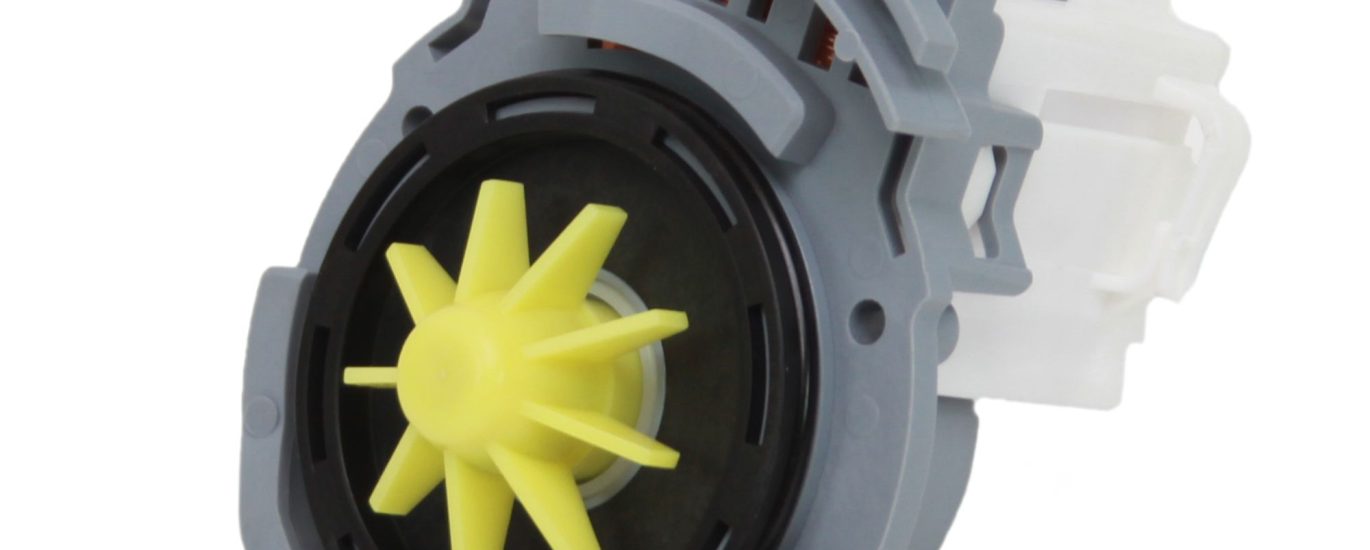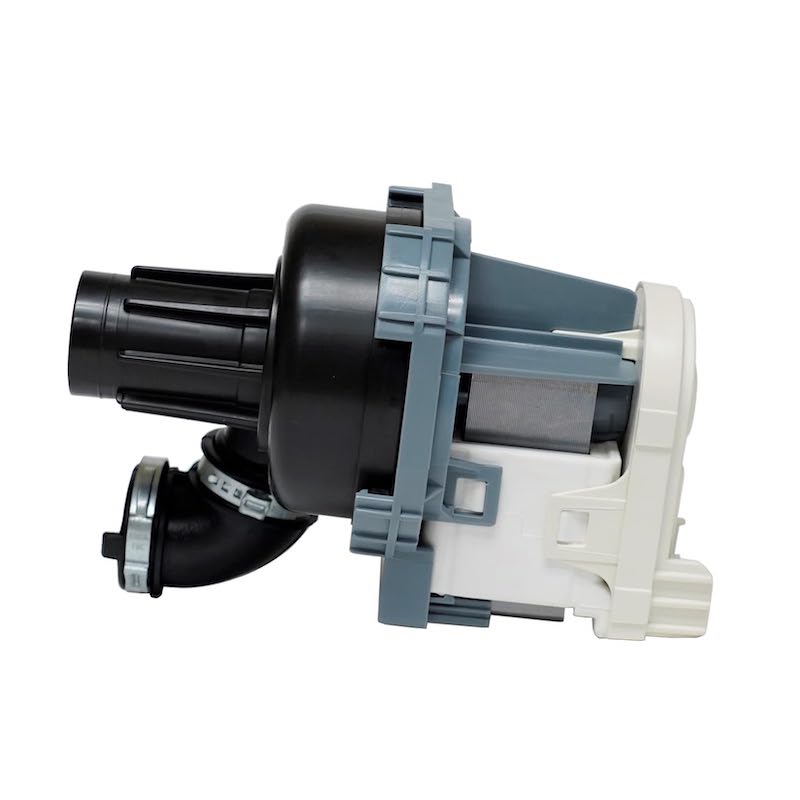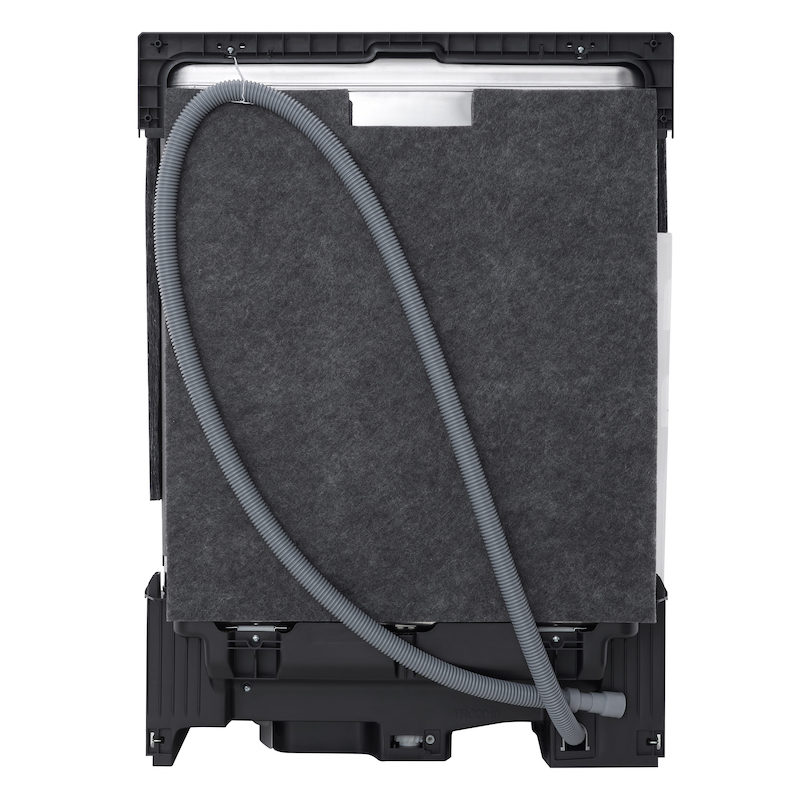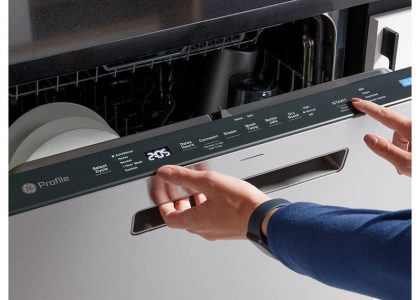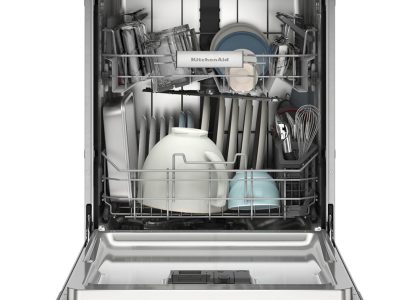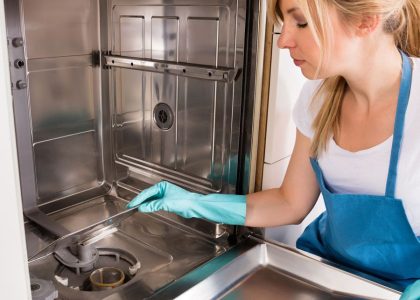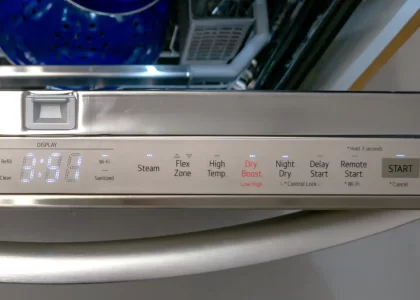Identifying Common Dishwasher Noises and Their Causes
Why dishwasher making noise when water circulates? When your dishwasher starts making unexpected noises during the water circulation phase, it can be concerning. Understanding these sounds is crucial to troubleshoot effectively. Here, we identify common noises and their possible causes.
Beeping Noises and Error Codes
A beeping sound often signals that your dishwasher is experiencing an issue. Check the display for any error codes. Refer to your user manual to understand what these codes mean and how to address them.
Grinding Noises from Object Interference
Grinding noises usually suggest that something is obstructing the chopper blade. This could be a piece of food or broken dishware. Turning off the dishwasher and checking the chopper blade area can help resolve this issue.
High-Pitched and Buzzing from Circulation Pump Issues
A high-pitched noise or buzzing often indicates a problem with the circulation pump. The bearings might be worn out, affecting the dishwasher’s ability to wash dishes properly. Replacing the circulation pump is typically necessary to fix this problem.
Knocking or Rattling from Improper Loading or Loose Parts
Knocking sounds usually occur when dishes are not loaded properly, causing interference with the spray arms. Securely stacking dishes and ensuring spray arms can rotate freely will help minimize this noise. Additionally, a rattling noise may be due to a loose drain hose. Securing the hose properly should reduce or eliminate this sound.
Step-by-Step Guide to Fixing a Grinding Noise
When your dishwasher begins to emit a grinding noise, it can be alarming. This sound often indicates a mechanical issue that, fortunately, can be tackled with some basic troubleshooting steps. Follow this step-by-step guide to help you diagnose and fix the problem.
Accessing and Cleaning the Chopper Blade
The chopper blade in your dishwasher helps prevent large debris from clogging the drain. To clean it:
- Turn off the dishwasher’s power for safety.
- Remove the bottom rack to access the chopper blade area.
- Take out the spray arm and dishwasher screen if necessary.
- Inspect the chopper blade for obstructions or damage.
- Clean the blade and remove any debris.
- If the blade is damaged, consider ordering a replacement from your dishwasher manufacturer.
Checking for Insufficient Water Level
A low water level can cause the dishwasher to make grinding noises. To check the water level:
- Start a cycle and allow the dishwasher to fill.
- Open the unit to see how much water is inside.
- If the water is insufficient, this could signify an issue with the water inlet valve or the float.
Clearing the Overflow Protection Float
The overflow protection float helps maintain the correct water level. If blocked, it may prevent the dishwasher from filling adequately:
- Locate the float; usually found in the front right corner.
- Ensure that no debris is blocking the float’s movement.
- Clean around the float and check its mobility.
Replacing a Defective Water Inlet Valve
If you’ve ruled out other issues, a defective inlet valve may be responsible:
- Disconnect power and water supply to the dishwasher.
- Access the lower panel to reach the valve.
- Disconnect the water inlet valve from its connections.
- Install a new valve and reassemble the connections.
By addressing these aspects one by one, you can reduce or eliminate the grinding noise and ensure your dishwasher operates smoothly. Remember, if these steps seem overwhelming, consulting with a professional technician is advisable.
Troubleshooting Other Dishwasher Sounds
Dealing with High-Pitched Noises and Buzzing
High-pitched noises and buzzing in your dishwasher typically indicate issues with your circulation pump. The bearings in the pump may be worn out, affecting its function. To resolve this, disconnect the power and water supply to your dishwasher. You will need to locate and replace the circulation pump. Consult your user manual for model-specific instructions on replacing this component.
Resolving Knocking or Rattling Noises
Knocking or rattling noises often result from improperly loaded dishes or a loose drain hose. To fix this, ensure that dishes are positioned correctly so that spray arms can rotate freely. For a loose drain hose, secure it with cable ties to the dishwasher?s frame. This prevents movement and noise as water flows through it during cycles.
Tips for Proper Dish Loading to Prevent Noise
To avoid unnecessary noise, load your dishwasher correctly. Place larger items on the sides and back. Ensure nothing obstructs the spray arms? path. This simple step can significantly reduce the chances of knocking or rattling sounds during operation.
Securing the Drain Hose to Avoid Rattling
A loose drain hose can cause loud rattling noises during the drain phase. Secure the hose using cable ties or clamps to ensure it does not move against the dishwasher?s interior. This ensures a quieter operation and prevents potential damage to the hose.
Professional Intervention Versus DIY Repairs
When encountering dishwasher noises, consider whether you can handle the repairs yourself or if professional help is required. It often depends on the complexity of the issue and your comfort with appliance repair tasks.
When to Call a Technician for Dishwasher Noises
Call a technician for dishwasher noises if:
- The noise persists after trying all DIY fixes.
- You’re unsure about your ability to safely conduct repairs.
- The dishwasher displays complex error codes.
- You see evidence of electrical problems.
- The warranty may be voided by self-repairs.
Trained technicians can diagnose and fix problems quickly, ensuring your safety and the longevity of your appliance.
Safety Precautions for DIY Dishwasher Repairs
If you choose to repair the dishwasher yourself:
- Always disconnect power before starting work.
- Wear protective gloves to avoid injury.
- Use the right tools for each task.
- Never force parts apart or together.
- Follow all guidelines in the user manual.
Taking these safety precautions can help you avoid accidents and further damage to your dishwasher when water circulates and noise occurs.
Maintaining Your Dishwasher to Prevent Future Noises
Proper maintenance of your dishwasher helps prevent noises from occurring. By performing routine cleanings and checks, you can avoid future issues that may cause unwanted noise when water circulates. Here are some proactive steps to help keep your dishwasher running quietly and efficiently.
Regular Cleaning and Maintenance Routines
Make sure to clean your dishwasher regularly. Wipe around the door seals and remove food scraps from the bottom. Run an empty cycle with a dishwasher cleaner monthly. Check and clean the spray arms to ensure they are not clogged. Replace any worn parts like racks or wheels that may cause rattling noises.
Keep the filters clear. Remove them and rinse under running water. Also, look at the dishwasher’s interior for any residues or buildup. Use a soft brush or cloth for cleaning hard-to-reach areas.
Checking for Loose Parts Before They Cause Issues
Inspect your dishwasher for any loose components. Tighten any screws or fasteners that hold panels or parts together. Ensure that the dishwasher is level to avoid vibration and noise.
Examine the dish racks for damage or loose wheels. A tilted rack can cause dishes to clash and create knocking sounds. If anything looks worn, consider a replacement.
Look at the drain hose. It should not be loose or kinked. Fix any issues with the hose to prevent thumping sounds during draining.
Regularly tend to these maintenance tasks. They help keep your dishwasher in top condition, preventing disruptive noises from arising during operation.
Final Thoughts on Managing Dishwasher Noise
In this guide, we’ve tackled the common causes of dishwasher noises. Let’s quickly summarize the solutions.
Summary of Solutions for Common Noises
- For beeping noises, consult your user manual and follow guidance for error codes.
- Remove objects causing grinding noises from the chopper blade area.
- Replace the circulation pump if you hear high-pitched or buzzing noises.
- Ensure dishes are properly loaded and the drain hose is secure to prevent knocking and rattling.
- Regularly clean and maintain your dishwasher to avoid future noise issues.
Remember, addressing each noise with the right solution will keep your dishwasher running smoothly.
The Importance of Addressing Dishwasher Noises Promptly
Ignoring unusual dishwasher noises can lead to bigger problems. Quick fixes can save time and money in the long run. If you’re unsure about a noise, seeking professional help is the best step to prevent further damage. Keep up with maintenance, and you’ll likely enjoy a quiet and efficient dishwasher for years to come.

